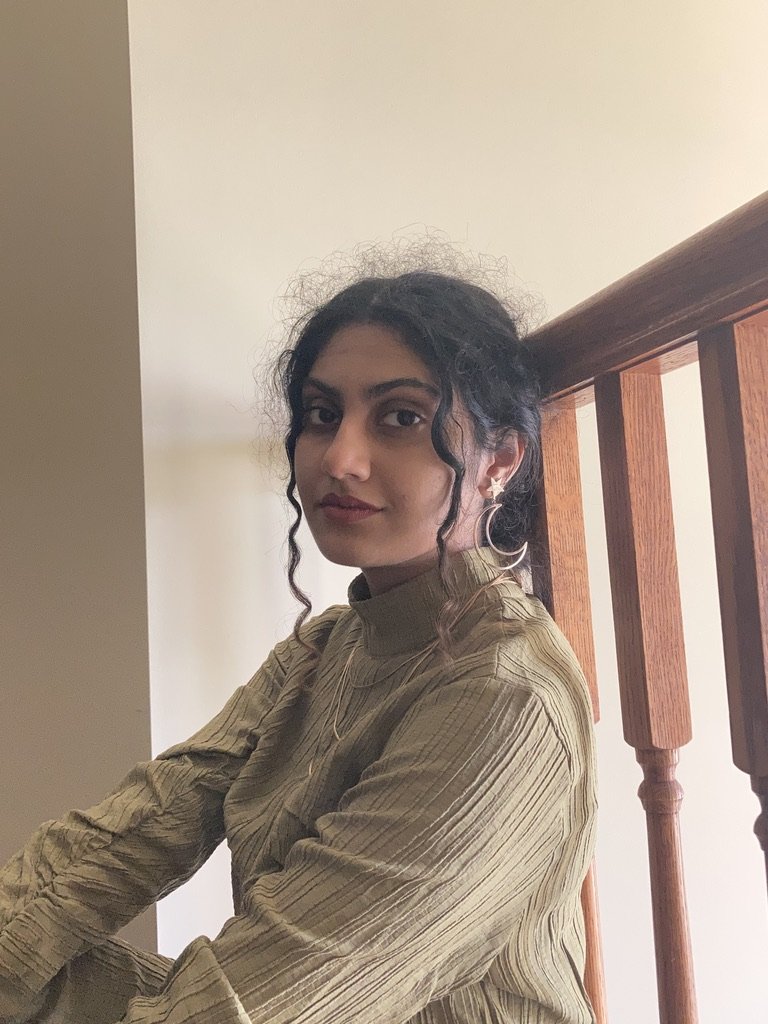Iqra Abid Reviews jaye simpson’s it was never going to be okay
jaye simpson. it was never going to be okay. Nightwood Editions. $18.95 CDN, 112 pp., ISBN 9780889713826
Crafting Poetic Vulnerability
it was never going to be okay is a heart-wrenching poetic debut by Oji-Cree Saulteaux writer jaye simpson. The full-length collection honestly and creatively examines legacies of genocide and colonization while celebrating transness and Indigeneity. The opening poem, “sea glass,” has the build-up of a tidal wave, beginning with a "dreamy hot day, / beachside stomach full of fruit, / skin kissed by the sun." However, the warm scene is soon disrupted by shards of reality like "in order to love me: / i had to break." These contrasting tones effectively lead to a powerful and dramatic delivery, leaving readers enchanted from the first page. This opening is enough to understand why it was never going to be okay was shortlisted for the Dayne Ogilvie Prize for LGBTQ2S+ Emerging Writers and the Indigenous Voices Award in 2021.
simpson’s lyrical mastery lies in their use of metaphors and descriptive imagery. In “teeth & sharp bones (a dialogue),” simpson uses teeth and bones to represent anger, resistance, and strategies for survival— all lingering effects of colonization and Canada’s ongoing genocide of Indigenous peoples. This poem is followed by “boy,” a well-loved piece by simpson’s readers. The speaker in “boy” recalls what it was like to grow up as a queer child forced to abide by binary roles and the gut-wrenching misery of never being seen. simpson writes;
i am five
my sisters are saying boy
i do not know what the word means but
i am bruised into knowing it: the blunt b,
the hollowness of the o, the blade of y
oh how they struck
This poem, characterized by loss and grief, is also filled with deeply transportive imagery. “boy” is a testament to simpson’s compelling storytelling abilities.
Other poems in this collection focus less on image-making. Instead, they move towards capturing the grave reality of marginalized existence with precision and care. The poem “urban NDN in the DTES” is a perfect example of this as the speaker traces their family history with gendered violence. “i have become a regular at the funeral parlour on hastings. / burying parent & child every other week.”, simpson writes. “don’t have tears left once home, save them / for longer nights / remember there are NDN children / who need to eat still.”
The following poem is “it is too late”, a piece that explores the loss of language as an impact of colonial violence and intergenerational trauma. They write:
maybe you can
relearn//unlearn
the feeling
of nimama
pulled from throat,
flayed tongue worn
on nun’s habit
three matriarchs
back?
simpson’s ability to connect with the reader while emphasizing the trauma of these experiences demonstrates their prowess; they move the reader without sugar-coating the deep-seated pain of the experience and stir their audience by skillfully maneuvering between a lyrical or narrative writing style. simpson’s effortless navigation of these styles is the most admirable feature of their writing.
My favourite aspect of this collection is simpson’s creative use of space. “haunting (a poem in six parts)” uses space and shape to explore childhood trauma, barriers to kinship and escapism as a coping mechanism. The lines in part five, “v. locks, stopping and libraries”, are written into the shape of a key. The shape illustrates how the speaker of the poem has created their own key to survival, opening themself up to a new life immersed in literature instead of continuing to pursue a familial connection with someone who hurts them. This visual component of simpson’s storytelling draws attention to itself in a sea of words, keeping readers visually and emotionally engaged with their work.
“waterways” is another gorgeous poem that fills the white pages with patterns. The line breaks and intervals between words are precise and rhythmic, emphasizing certain words or phrases, painting detailed scenes, and illustrating the ups and downs of each story and the ascending and descending tones of each line as if it were being read out loud. This technique reappears throughout the full collection and has evidently been developed through simpson’s experiences as a spoken word performer. The line spacing and blank intervals in “waterways” captures the softness of the final section of it was never going to be okay, especially when simpson writes:
these waters feel like what i imagine hugging my mother
would feel like now:
a long time coming—
space missing somewhere in the middle.
jaye simpson’s ability to be vulnerable makes them an extraordinary storyteller. it was never going to be okay is a beautiful collection split into four sections, focusing on youth, kinship, the body, and healing sequentially. With tactful repetition, powerful metaphors, immersive imagery, and artistic use of space, simpson’s speaker bares their soul in a call to be heard.
Iqra Abid (she/her) is a young, Pakistani, Muslim writer based in Ontario, Canada. She is currently an undergraduate student studying Psychology, Neuroscience and Behaviour. She is also the founder and Editor-in-Chief of Kiwi Collective Magazine. Her work can be found in various publications such as Crossed Paths, Scorpion Magazine, Tiny Spoon Lit Magazine, and more.


